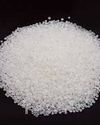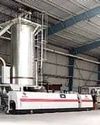Extrusion

The global nylon monofilaments market is projected to hit $1.89 billion by 2020, according to a report by Radiant Insights, with the growth of key end-use industries such as automotive, fishing and consumer goods. The Asia Pacific as the leading regional market accounted for more than 64% of the total market volume, and this position is expected to be sustained over the forecast period. Growth of fishing and automotive industries in China, India, and Indonesia is expected to drive the regional market.
Monofilament extrusion systems have become more sophisticated, owing to R&D initiatives by leading producers of this product line. One company, PLASCO Engineering Inc. has maintained its pioneer position as a leading supplier of a comprehensive range of plastic extrusion lines in Asia and has also been successfully penetrating the international markets.
“Monofilament is used in our everyday life in various forms, and it is widely preferred in various applications due to its flexibility, good shock strength, and cost-effectiveness. Monofilament is commonly used in fishing and agriculture net, ropes, fabrics, filters, textile conveying belts, medical devices, wastewater treatment, stretched tape, and sports strings. In this area, PLASCO has over 30 years of experience manufacturing monofilament extrusion line for the global market, offering customer ideal process system to capture the ever-growing market, enhance profitability, and sharpen customer’s competitive edge,” according to Tony Wang, General Manager.
This story is from the {{IssueName}} edition of {{MagazineName}}.
Start your 7-day Magzter GOLD free trial to access thousands of curated premium stories, and 9,000+ magazines and newspapers.
Already a subscriber ? Sign In
This story is from the {{IssueName}} edition of {{MagazineName}}.
Start your 7-day Magzter GOLD free trial to access thousands of curated premium stories, and 9,000+ magazines and newspapers.
Already a subscriber? Sign In

Industry innovations aimed towards a greener future
Sustainability and circular economy, energy saving technologies, high-performance materials with enhanced properties, and cost-efficient production processes are expected to dominate the plastics industry in 2022 and beyond.

Special extrusion lines for bioplastic compounds
The biodegradable and compostable plastics sector is growing steadily, and this is partly due to the fact that several measures have been taken, especially in the EU, to cut down on single-use plastics.

Plastics revolutionise medical device production
The coronavirus pandemic has brought into focus the urgent need for medical supplies – which included medical disposables, medical devices, laboratory equipment, and many others.

Spinning and recycling go together in a single step
As a medium-sized German machine construction business, BB Engineering has been manufacturing components and systems for synthetic fibre and film production for more than 20 years.

Advanced high-performance light stabilisers
A range of high-performance light stabilisers with enhanced properties are now being made available.

ArabPlast holds successful edition
The 15th Edition of ArabPlast was held on 15-18November 2021 at the Dubai World Trade Centre, Dubai, U.A.E. Spanning over 28 years, ArabPlast is an exclusive event for plastics, petrochemicals, packaging and rubber industry, and serves as an attractive platform where global industry players show off their products to the Middle East market.

Food-grade plastics recycling facility installed in India
The well-established Indian recycler commissioned a PET bottle-to-bottle and a post-consumer polyolefin recycling line from Starlinger in mid-September.

How to bring down downtime in manufacturing
For most of us, the word downtime conjures images of relaxation.

Optimistic forecast for blow moulded plastics market
Growing demand from key applications is a key factor in the projected growth of the blow moulding sector.

The benefits of dedicated system for mould development
When it comes to useful tools that can enhance teamwork efficiency, we usually think of the Product Lifecycle Management (PLM) systems.